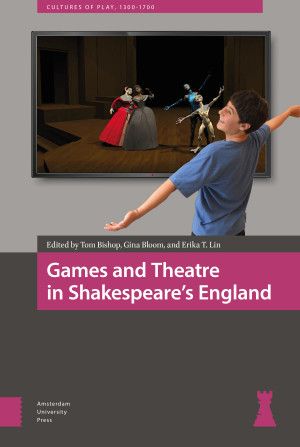“This engaging and provocative essay collection opens by attempting to answer the question “What is a game?” but, by the time they finish, readers are also left with a range of new and surprising answers to the question “What is a play?”
-Theatre Survey
“Through a set of wide-ranging critical approaches, Games and Theatre in Shakespeare’s England not only reveals the pivotal importance of “play” in Renaissance drama, but also in theatre studies in general”
-Theatre Journal
"This latest entry in the Cultures of Play, 1300–1700 series with Amsterdam University Press is essential reading for anyone studying, teaching, or interested in games then and now. … From beginning to end, the editors have gifted their readers with a thought-provoking collection that advances the study of early games with a stellar constellation of chapters. As Bishop, Bloom, and Lin state, ‘videogame culture today has come to resemble the improvisatory and participatory culture of theatregoing in early modern England’ (30), and their collection of essays is an important step toward understanding the interconnection between these two worlds and forms of play."
- Mark Kaethler, Early Theatre
''The editors of Games and Theatre in Shakespeare's England have delivered a carefully curated volume that offers an evocative hermeneutical paradigm that changes supposedly settled critical assumptions as well as an impressively wide range of conversations and materials that will benefit students and teachers at all levels of education.''
- Kurt Schreyer, Renaissance Quarterly, 2023, 76(4)

